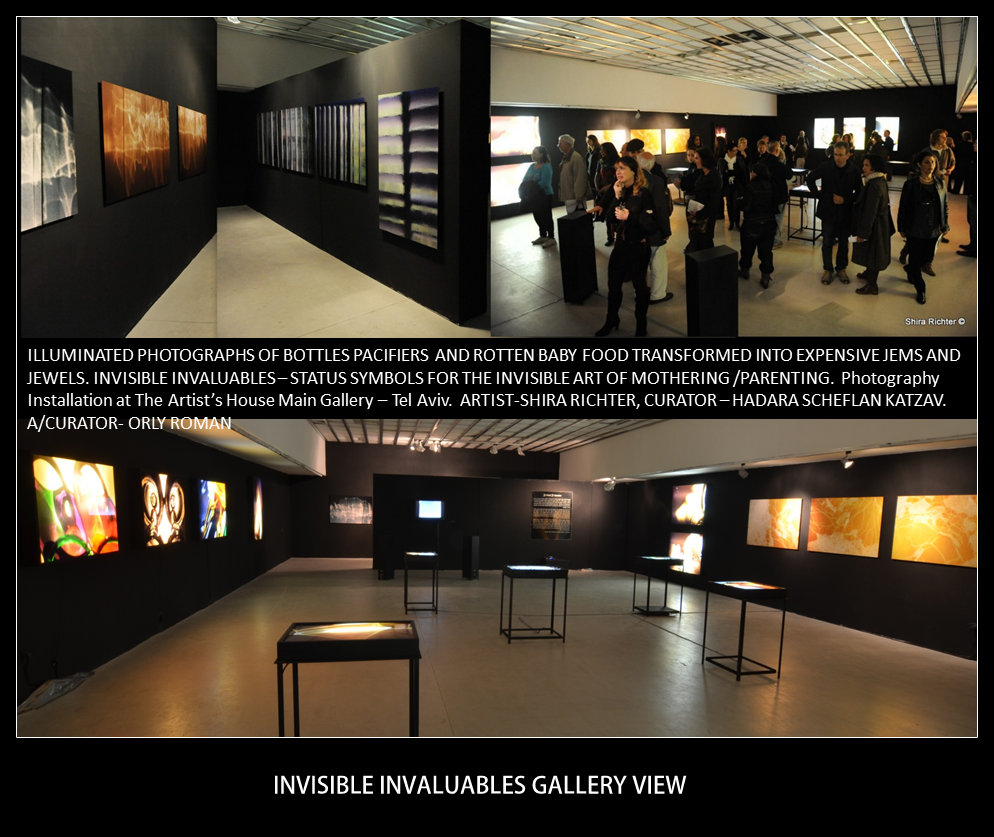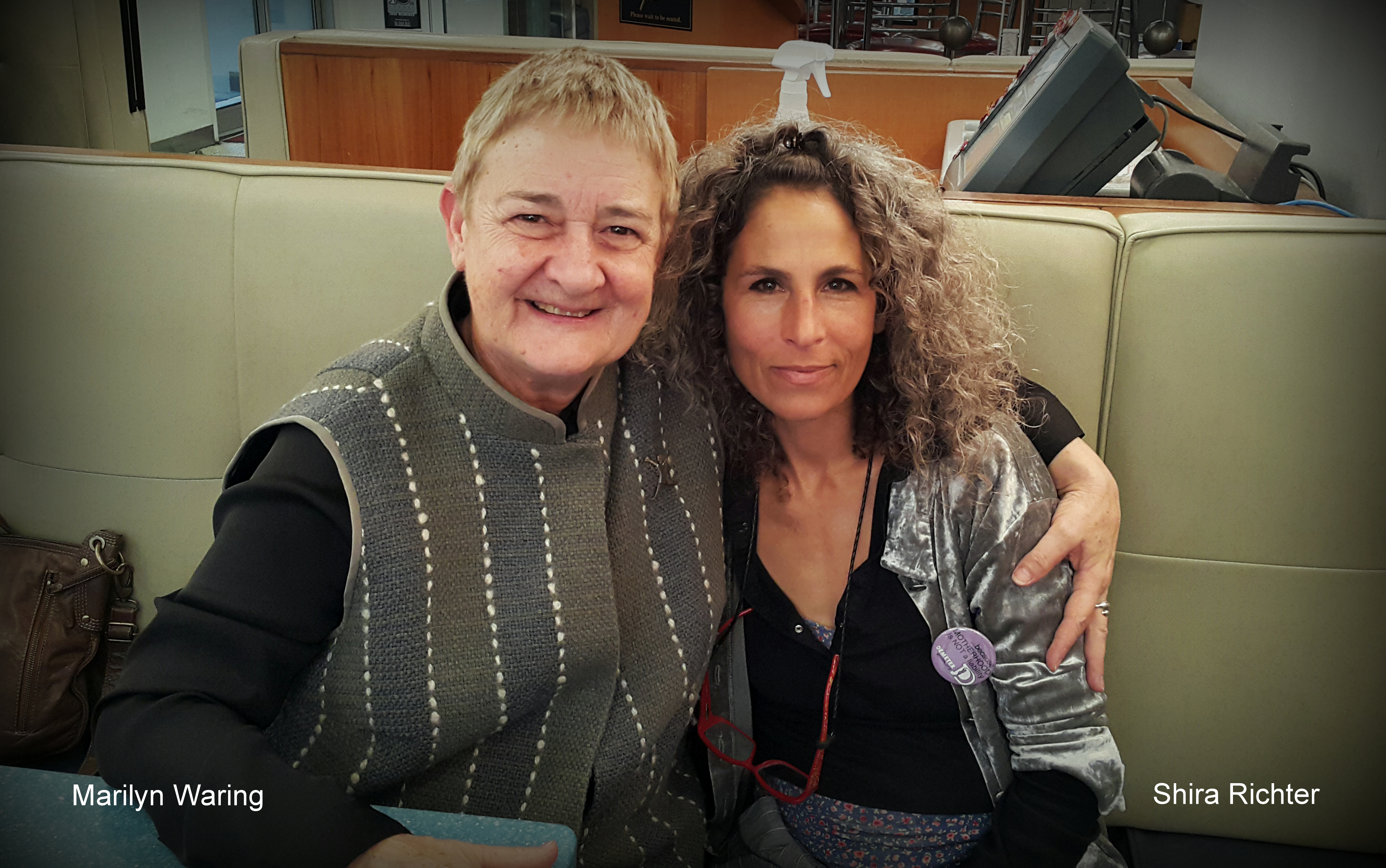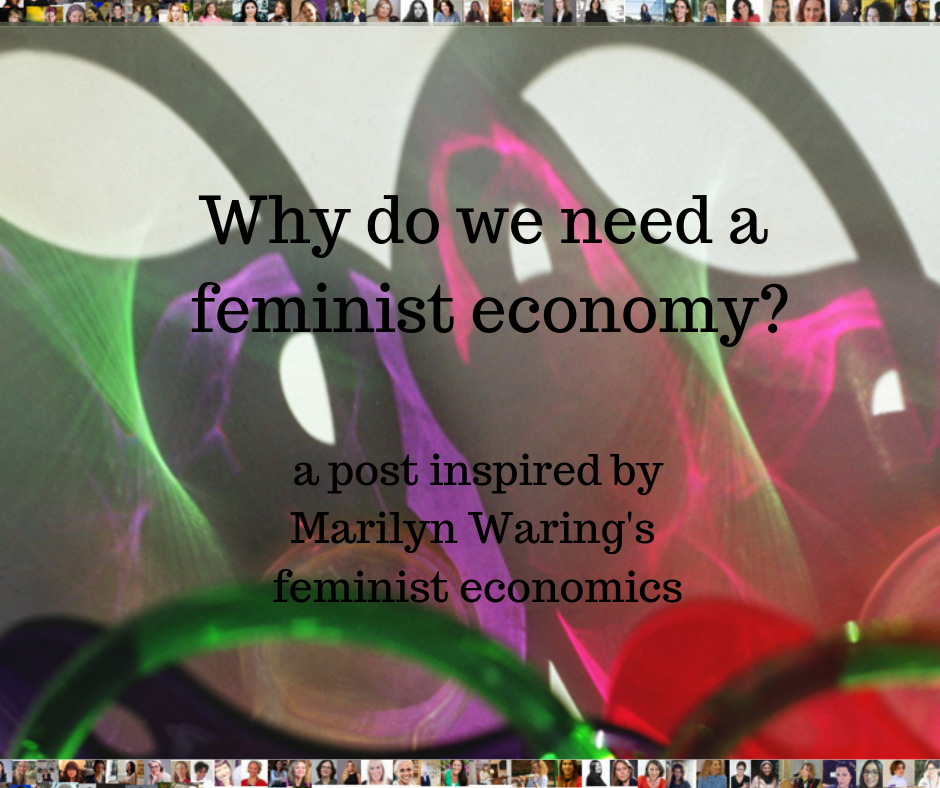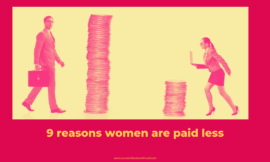I met gender expert and artist Shira Richter two months ago, interviewing her for this month’s InspHERation blog post. In our long and fascinating conversation, Shira mentioned her mentor, Marilyn Waring. I hadn’t previously heard of her.
Marilyn Waring, Shira patiently explained, is a feminist economist, one of the mothers of the feminist economics. She made the world aware that while women are both plenty valuable and productive, their work on the home front is not counted in national accounting, thus deeming their work worthless.
Shira came in contact with Marilyn Waring’s work almost two decades ago. Having fallen in love with her ideas and having read her monumental book “Counting for Nothing,” Shira continues to study Marilyn’s work, adopting her ideas and making them accessible in Israel.
Israel and the Feminist Economy
Israel is a traditional society, certainly when it comes to the way it views women. Motherhood in Israel is a superior value. Women in Israel who don’t bring children into the world are devalued; they are taxed as men though they earn far less.
That fact doesn’t come to say that mother’s work is valued. Work in the home, of which women statistically do more, is not taken into account in GDP. What this means is that mothers who solely take care of their children have less economic value than mothers who work out of the house, which of course is reflected in women’s self-confidence.
In my own experience, though I relished every moment with my babies, I constantly felt the need to do something more. Between feeding, napping and cleaning, I wrote my Master’s thesis – because I too never felt that I was doing enough just raising babies. Today, as a result of my talk with Shira and understanding some of Marilyn Waring’s ideas, I understand that this is how most of us think because of the way the economy is set up.
The Art of Women’s Value
It’s these ideas that Shira fell in love with and which with she made accessible in her art, specifically her exhibition “Invisible Invaluables.”
Viewing her art, it immediately hits me that the exhibition was born out of Shira’s ability to see her value – both intrinsic and economic – in her work as a mother raising her own children.

This may seem trivial. But it is not. Because in order for this to happen, Shira needed to be completely immersed in nurturing her children on the one hand, while completely aware of the economic value of her work on the other. Considering that our time and tasks are so fractured, this is no small feat.
Just a few months after the exhibition, Shira, together with Professor Hadara Scheflan Katzav answered a call for papers for the book “Counting on Marilyn Waring,” to which they co-authored a chapter: If Mothers Counted: Status Symbols for the Invisible Art of Mothers, and in 2016, Shira finally got to meet Marilyn Waring at the Mothers, Mothering and Motherhood conference in Toronto, .

Building a Better Economy
According to the principles of the feminist economy, what we need is a workforce that values the ethics of human care. A way must be found for women’s work to be counted. That doesn’t in fact mean that women should be paid for their work, but it does mean that it should be counted; that mothers who raise their children without getting a job outside the home are in fact viewed as equal to mothers working outside the home and who are making a visible contribution to the economy.
In my work as a copywriter, blogger and aspiring novelist and screenwriter, I work towards giving women a platform, to making them more visible to assisting, inspiring and empowering them. However, women can only truly become more visible when the work they perform is seen as economic power. It is only then, that they will have more power, more choices and become equal partners.



